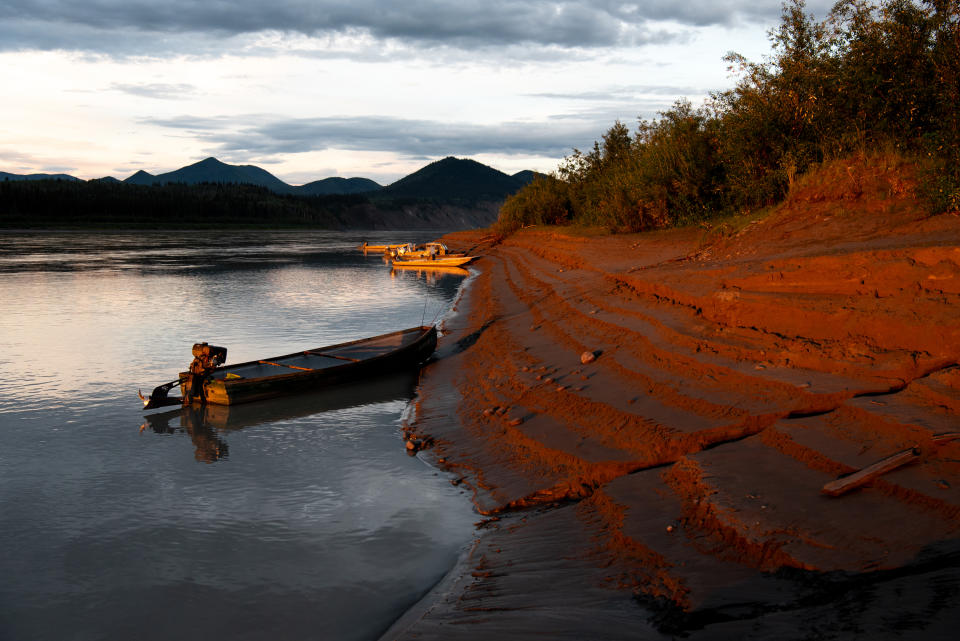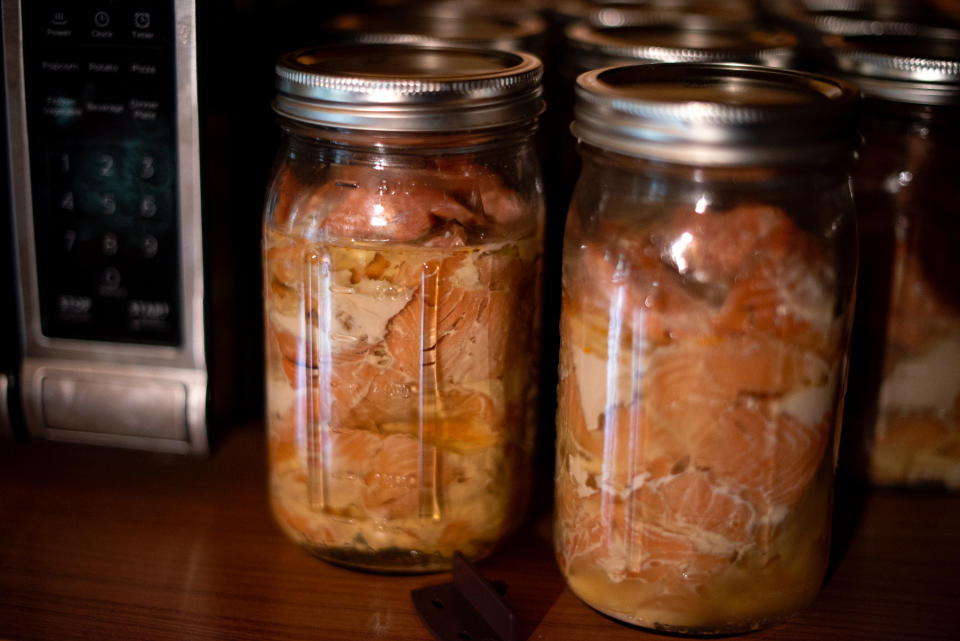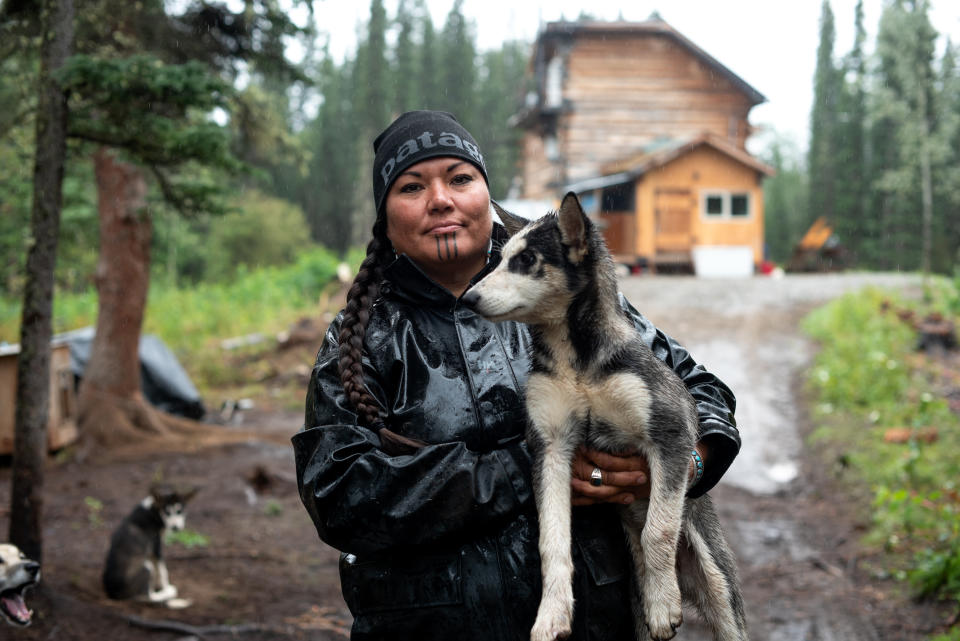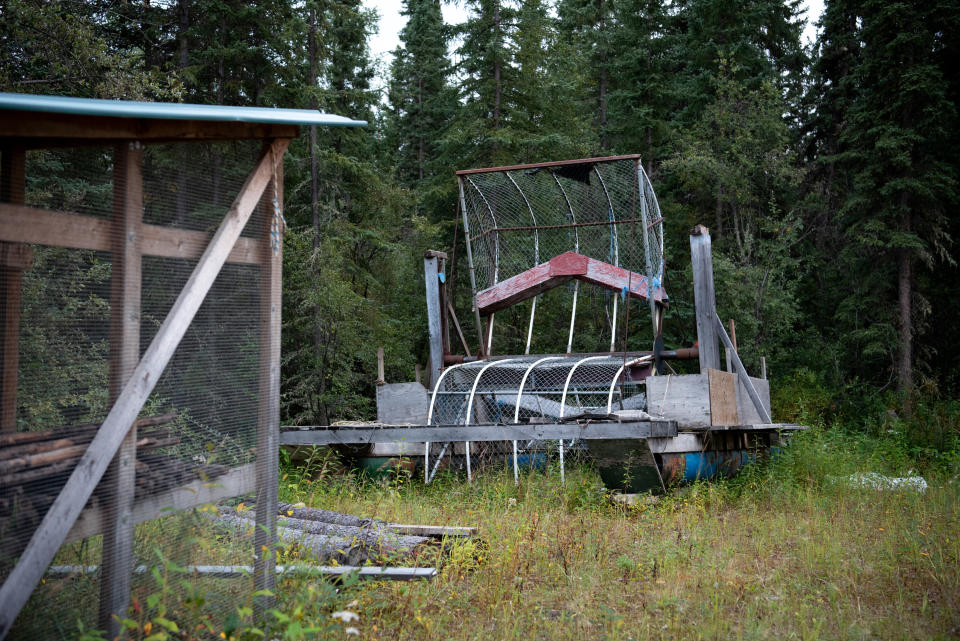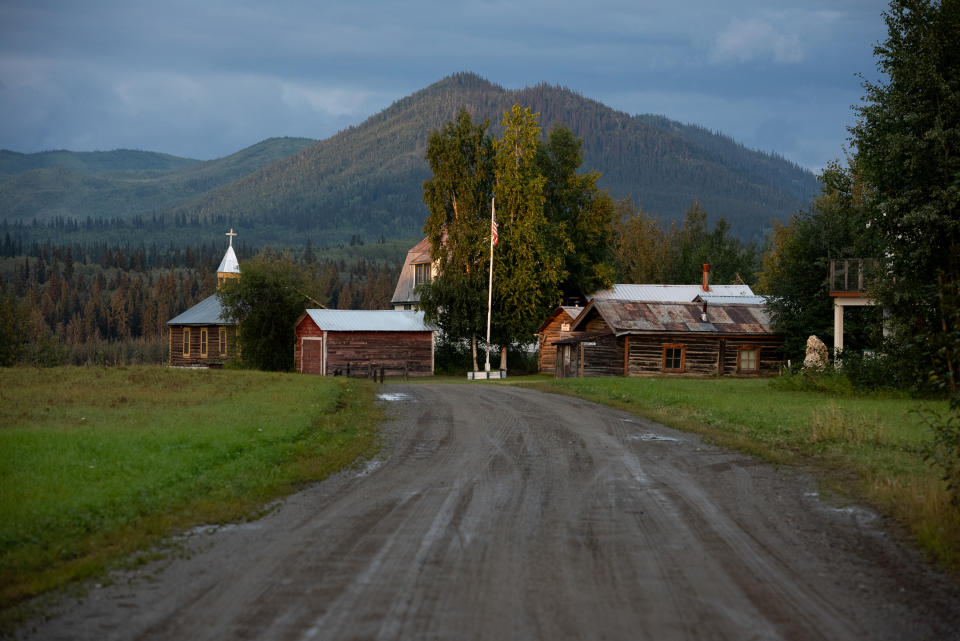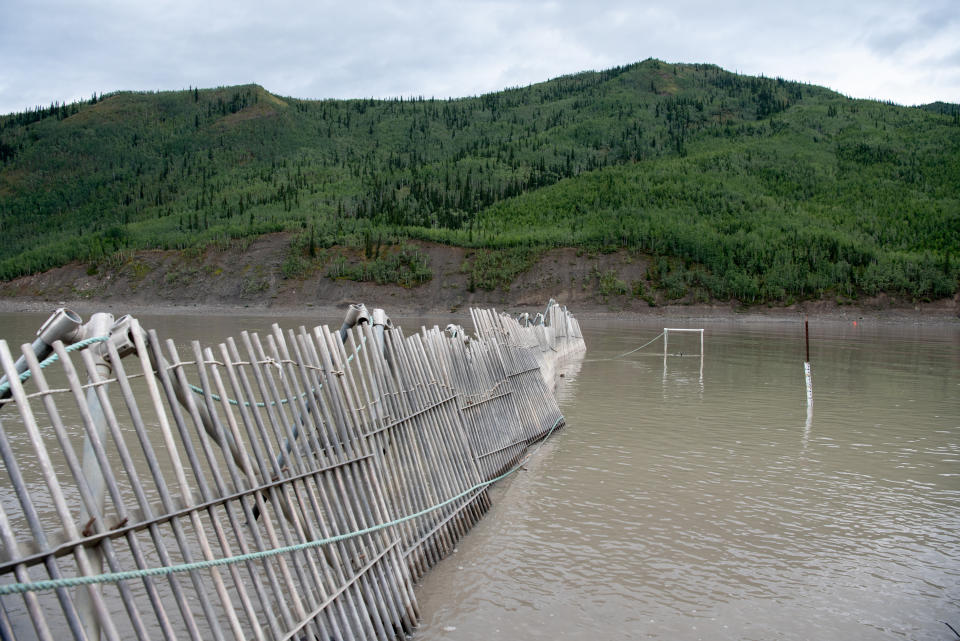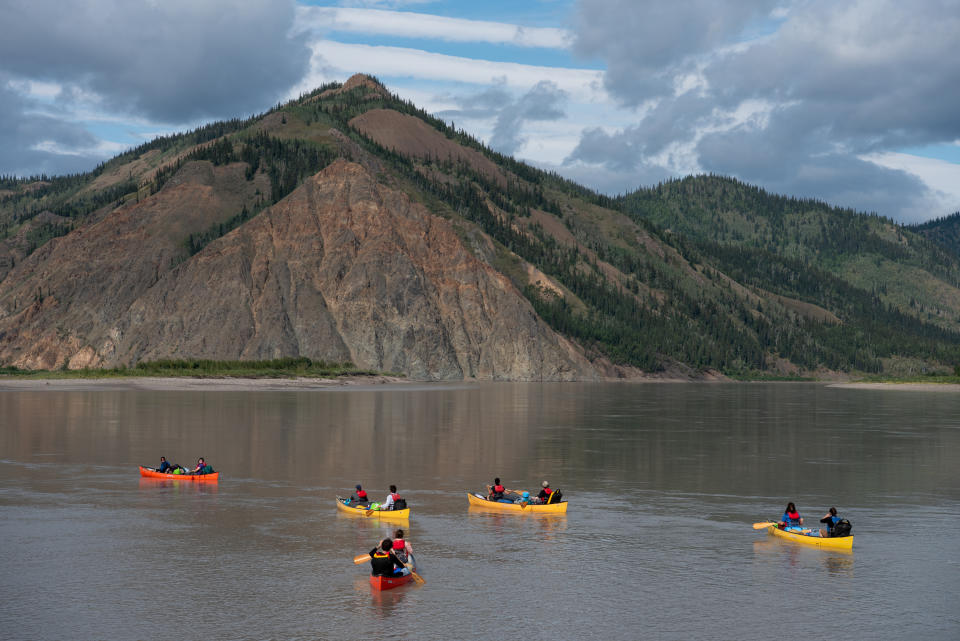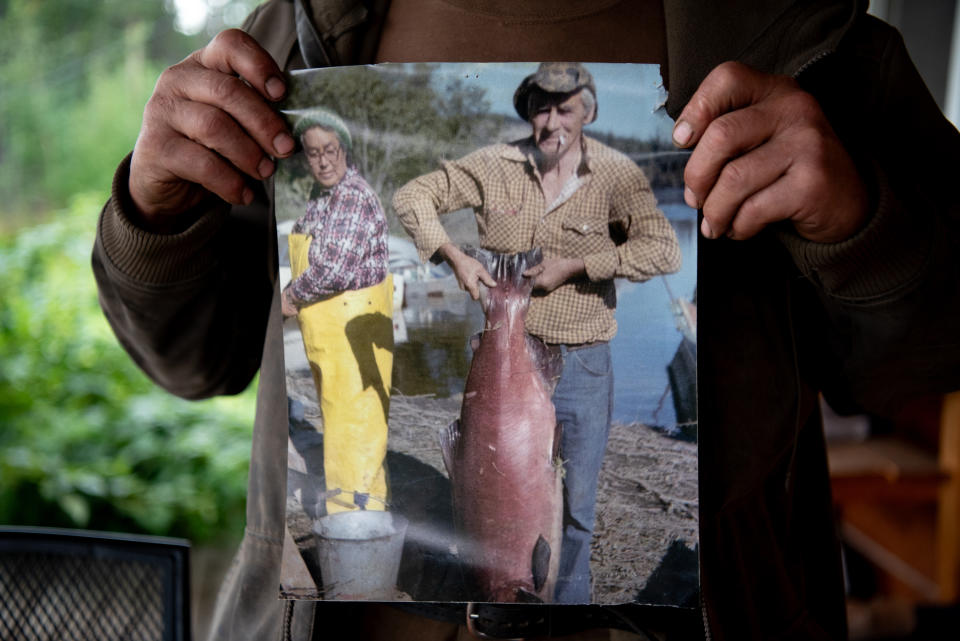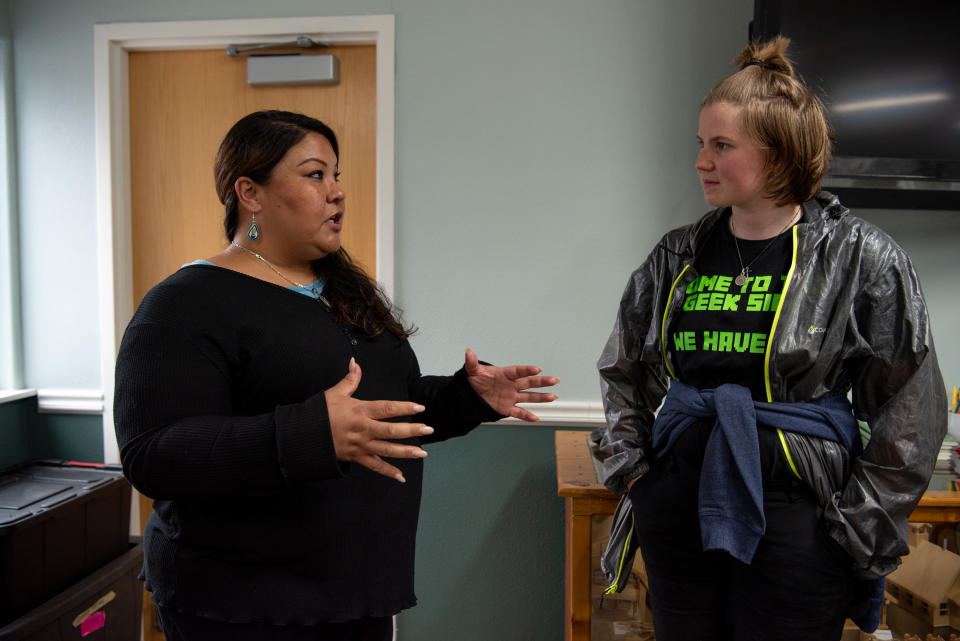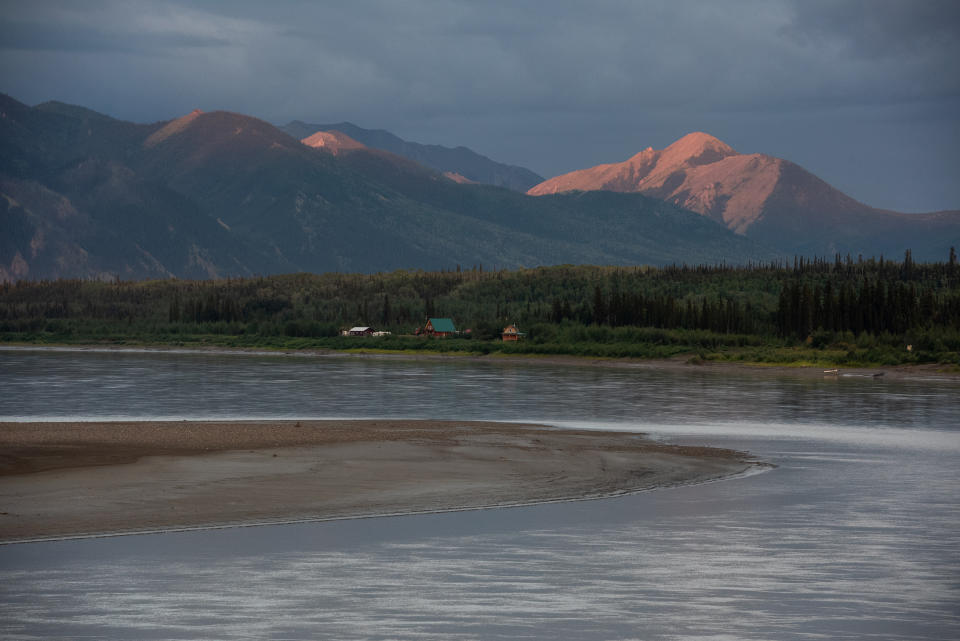There's a crisis in the Yukon River
EAGLE VILLAGE, Alaska - When Jody Potts-Joseph was growing up, her family mushed sled dogs during the harsh Alaskan winters to hunt and trap, feeding them salmon caught from the Yukon River by the thousands.
But after rebuilding her sled dog team as an adult, Potts-Joseph, a member of the Han Gwich'in tribe, had to turn to store-bought dog food. The river that was once renowned for its salmon doesn't have enough to offer anymore.
"We haven't been able to fish for a number of years," she said as her dogs yelped outside her home in Eagle Village, close to the Yukon near the border with Canada.
Flowing from British Columbia through Alaska to the Bering Sea, the nearly 2,000-mile-long Yukon River used to teem with Chinook and chum salmon, sustaining a culture of harvesting fish to feed both Alaskans as well as sled dog teams vital for transportation during the winter.
Now those salmon runs have turned into a trickle, as climate change and other factors weigh against the fish. The result is a drastic cut to local food supplies in a region where store-bought food, shipped in from thousands of miles away, is expensive.
"Alaska is a canary in the coal mine," said Andy Bassich, a homesteader and dog musher at Calico Bluff only a few miles from the Canadian border. "What's happening up here is only going to happen in the Lower 48 farther down the line."
The declines have forced regulators to issue a series of restrictions on subsistence, commercial and recreational fishing up and down the river, upending a way of life for Alaska Native people and severing a vital connection between land and sea.
There are two main species of salmon to fish in the Yukon. The first is chum or dog salmon, which is traditionally fed to canines here but still eaten by people. The other is Chinook or king salmon, the larger and fatter variety that people eat in Alaska and around the world.
"This is food that my family and our ancestors have used for millennia," said Karma Ulvi, chief of the Eagle Tribal Council. "For thousands of years, we've fished on these rivers and our people lived here and we took only what we needed."
Both varieties are vanishing. Compared to about the last three decades, the Yukon's chum populations declined by around 80 percent in the period between 2020 and 2022, according to the Alaska Department of Fish and Game. Chinook salmon numbers, meanwhile, dropped by nearly two-thirds during the same time.
Sonja Sager, a mother of six who lives near Eagle, remembers those better days. Every summer, family members scattered around the region gathered for weeks at "fish camp" along the river to net, cut, brine, smoke and can the salmon that got them through the harsh winters. Smoked strips of the blood orange meat, she said, were "high-power food" that let them endure subzero temperatures.
"You could just feel the goodness and the warmth flowing into you when you eat that when it's cold."
But the restrictions on salmon fishing over the last several years have forced her family to grow more potatoes, hunt for more moose and fish for less-nutritious whitehead and pike to sustain themselves. "They don't make up for that really rich, beautiful orange meat," she said.
Lost with the decline in the Yukon's salmon is more than just a food source. For now, people living here cannot connect with family at fish camp and share knowledge about how to catch and prepare salmon.
"We're watching our way of life slipping away," Sager said.
For Potts-Joseph, supermarket food just isn't as healthy for Indigenous people like her. "The food that we get from the land, it works the best with our DNA," she said. "And it's something our people have eaten and lived off for thousands of years."
Researchers attribute the decline in salmon to a constellation of factors. "Like a lot of 21st-century environmental problems, it doesn't have a singular cause," said Bathsheba Demuth, an environmental historian at Brown University who is writing a book about the Yukon.
One contributing factor for the decline is happening hundreds of miles away at sea. Commercial fishing boats in the Bering Sea and elsewhere off Alaska that use huge nets to trawl for more than 2 billion pounds of pollock a year - a fish used in fish sticks and McDonald's Filet-O-Fish sandwiches - are accidentally scooping up salmon born in the Yukon and destined to return to the river.
Tim Bristol, executive director of the advocacy group SalmonState, wants to see regulators limit bycatch, or the number of chum salmon ocean fishers take accidentally, by shutting down fishing that harvests too many chum.
The National Marine Fisheries Service and the North Pacific Fisheries Management Council, which oversee Alaskan fisheries, have limits on bycatch for king salmon. Bristol said that is "an improvement" but may have come too late.
He added that other parts of the world have moved away from trawling. Earlier this year, trawling vessels killed several orcas off Alaska. Whether the practice should continue is "a question for Alaska, and I think it's a question for the United States," Bristol said.
But the pollock fishing companies said existing bycatch limits are working well to curb the Chinook taken. The chum salmon the fleet accidentally catches, it adds, is mostly from Asian hatcheries, not Alaskan rivers.
"Although the Alaska pollock fishery is not the cause of this crisis, we are redoubling our focus on technology, management and science innovations to minimize the incidental catch," said Stephanie Madsen, executive director of the At-sea Processors Association, a pollock industry group.
Michael Kampnich, a commercial fisher and a former logger, used to dismiss environmentalists' concerns. But he said it is impossible for him to ignore the impact of trawling.
"The scale of this bycatch is unimaginable," he said. "And I just understand, this is not sustainable."
But a bigger threat to salmon, scientists say, is climate change. In the ocean, higher temperatures, including a massive marine heat wave known as the "Blob," made it hard for some younger salmon to feed and thrive.
And when adult salmon return to the Yukon to spawn, they get no reprieve as warming river waters stress the cold-loving fish as it makes its epic journey. The trip up the Yukon into Canada, the longest for any salmon on Earth, is stressful enough even for healthy fish.
"It's the equivalent of doing an ultramarathon every day for a month," said Katie Howard, a fisheries scientist who leads the Alaska Department of Fish and Game's salmon ocean ecology program. "That's what they're swimming."
Also contributing to the declines is a vitamin deficiency in some fish, as well as a disease called ichthyophonus that may be spreading more readily among the stressed fish.
"There's many things that are affecting the decline in salmon, from warming waters to disease, but I think the one thing that we can fix is the commercial fishing and the bycatch," said Ulvi, who also chairs the Yukon Inter-Tribal Fish Commission, which formed in response to low salmon numbers.
Potts-Joseph hopes Indigenous knowledge about how to fish sustainably and catch only what is needed can help restore salmon. "It comes from thousands of years of living and observing and being a part of this landscape."
Demuth, the Brown University professor, took a class of undergraduates from the University of Alaska at Fairbanks on a canoe trip down the Yukon to gather some of that knowledge through oral histories.
Seneca Roach, an English and political science major from Homer who went on the trip, has more faith in their generation to solve climate change than they do in today's adult leaders.
"It's in your line of sight. Everywhere you go, you see the effects. It'd be a disservice to the world in general to not learn about it and care about it."
- - -
Dino Grandoni reported from Washington.
Related Content
What home schooling hides: A boy tortured and starved by his stepmom
Defending his 2020 fraud claims, Trump turns to fringe Jan. 6 theories
Kennedy Center Honors: Off-script moments energize the stately affair
